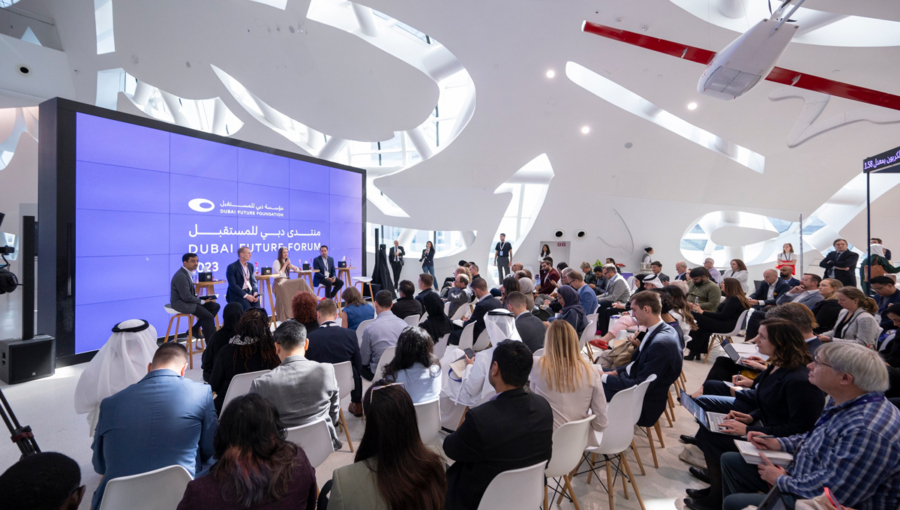Some of the world’s leading futurists revealed what they believe are the most essential facets of a just and equitable future on planet Earth.
Addressing the Dubai Future Forum, the world’s largest gathering of futurists with more than 2,500 participants, experts spoke about the importance of decentralisation, youth engagement, and robust action plans.
Alisha Bhagat from ‘Forum for the Future’, during a panel titled ‘The Future Today: What Do Good Futures Look Like Now?’, said: “Given the chaos we see around us, a good future is about practical action planning and tangible steps in the present. It is less about forecasting change and more about navigating change.”
“In this day and age, we need to think about justice, equity and sustainability. There is a large capacity for people to be creative about the future. A good future gives people such support and space to be the person who questions the present in order to achieve the future they want.”
In the same panel, Ella Saltmarshe from ‘Long Time Project’ said: “Good futures are multiple in every sense. Our future ability is a muscle that will grow stronger by exercising in different ways.”
Another session under the ‘Empowering Generations’ theme – one of four underpinning the forum’s discussions – delved into the solutions to humanity’s most complex and universal needs amid a growing population.
In ‘Journey to Dubai Future Forum 2023: How Has the Practice of Foresight Evolved?’, Prateeksha Singh from ‘UNDP’ and Finn Strivens from ‘Futurall’ urged societies to reflect on the major global transformations of the past few years to inform future planning and design.
In a session titled ‘Think of the Grandchildren: How Can Strategic Foresight and Intergenerational Fairness Work Together for Better Policymaking?’, speakers mulled the long-term consequences of contemporary decision-making. The panel heard how it is crucial to allow young people to voice ideas and participate in meaningful engagements.
Addressing barriers and challenges faced by foresight practitioners, UNICEF Youth Foresight Fellow, Nourhan Badr El-Din, emphasised: “It is important to create safe spaces for young leaders, encouraging their active participation in shaping the policies for future generations.”
Advocating for boldness in young leaders, Dr Karthick Ramakrishnan from ‘California 100 Initiative’, urged their participation in “every aspect” of the decision-making process.
In another session titled ‘Towards Other Futures: What Do We Hope to Leave Behind and for Whom?’, Macy Siu, from ‘Later’, shared her views on the link between artistic practices and future research.
“Artists are the humanity’s antennae. Art has a way of presenting facts of life. We have used arts to explore the future through feeling, and to imagine what a future feels like as opposed to what it looks like,” Siu said.
Radha Mistry from ‘Arup’ said “emotional engagement is lacking” from future thinking: “We need to ask how can we make the visions and stories about the future more tangible, more humane and more personal?”
The Dubai Future Forum, taking place on 27-28 November under the patronage of His Highness Sheikh Hamdan bin Mohammed bin Rashid Al Maktoum, Crown Prince of Dubai, Chairman of The Executive Council, and Chairman of the Board of Trustees of the Dubai Future Foundation.
